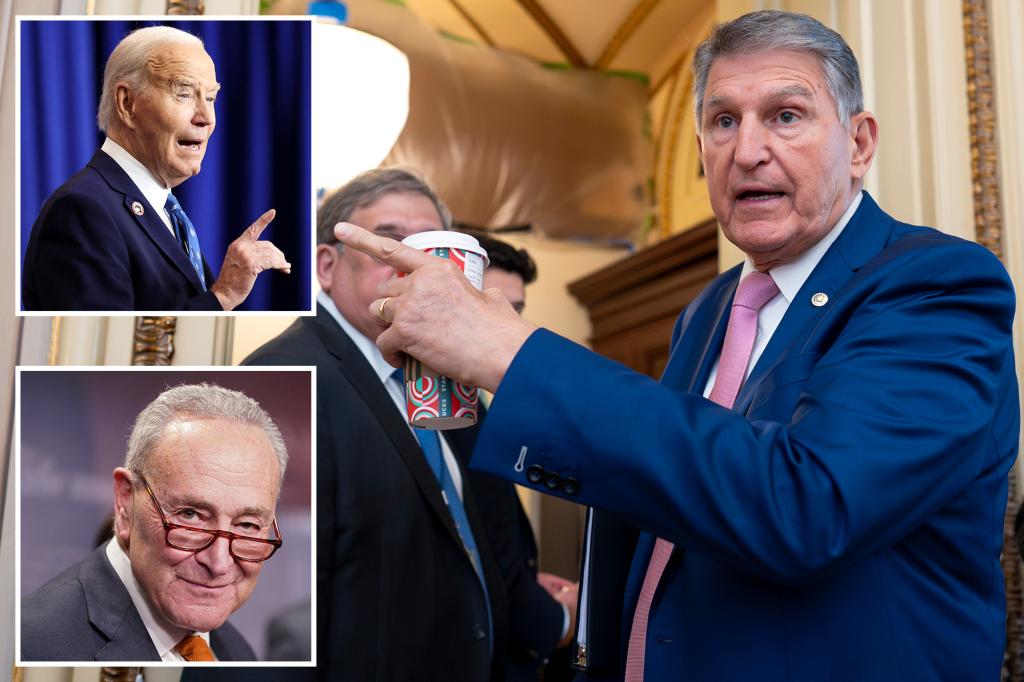Joe Manchin, the recently retired senator from West Virginia, has offered a scathing critique of the Democratic Party, describing its brand as “toxic” and lamenting its drift towards the extreme. Manchin, who left the Democratic Party to become an Independent earlier this year, argues that the party has become increasingly out of touch with the electorate, particularly in states like his own, and that this shift has alienated moderate voters. He points to the party’s embrace of progressive policies and its perceived paternalistic approach to governance as key factors in its declining appeal. This disconnect, he contends, has contributed to the party’s electoral struggles and fueled the rise of populist movements.
Manchin’s departure from the Democratic Party underscores a broader trend of political realignment in the United States. His decision reflects the growing divide between the progressive wing of the Democratic Party and more moderate or conservative Democrats, particularly those representing traditionally red or purple states. Manchin’s critique echoes the concerns of other centrist Democrats who worry that the party’s focus on progressive priorities alienates working-class voters and undermines its ability to win in crucial swing states. This tension within the party has been evident in recent election cycles and continues to shape the political landscape.
Throughout his tenure in the Senate, Manchin often found himself at odds with the Democratic leadership, particularly during the first two years of the Biden administration. He played a pivotal role in shaping key legislative initiatives, often acting as a crucial swing vote in the closely divided Senate. His opposition to several of President Biden’s ambitious spending proposals, including the initial iterations of the “Build Back Better” plan, drew considerable criticism from progressive Democrats. However, he ultimately supported a scaled-down version of the bill, rebranded as the Inflation Reduction Act, which included significant investments in climate change mitigation and healthcare.
Manchin’s willingness to buck his party and prioritize his constituents’ interests earned him both praise and condemnation. While some lauded his commitment to bipartisanship and fiscal responsibility, others accused him of obstructing the Democratic agenda and empowering Republicans. His actions highlighted the challenges faced by Democrats in navigating the complexities of governing with a slim majority and underscores the deep ideological divisions within the party. Manchin’s political positioning, often described as centrist, reflects the unique political landscape of West Virginia, a state that has shifted dramatically from reliably Democratic to overwhelmingly Republican in recent decades.
His decision not to seek re-election in 2024 reflects the changing political dynamics of his home state and the increasing difficulty for moderate Democrats to win in Republican-leaning areas. Manchin’s departure leaves a void in the Democratic Party, raising questions about the future of centrism within the party and the challenges of representing diverse constituencies. The rise of more partisan politics and the increasing polarization of the electorate have made it increasingly difficult for politicians like Manchin to navigate the political landscape and maintain broad-based support.
Looking ahead, Manchin has expressed interest in fostering a more centrist political movement, suggesting the need for a viable alternative to the two major parties. He has lamented the tendency of both Democrats and Republicans to cater to their respective bases, neglecting the concerns of moderate voters. Manchin’s call for a centrist alternative reflects a broader sentiment among some Americans who feel disenfranchised by the increasingly polarized political climate and seek a more moderate and pragmatic approach to governance. Whether such a movement can gain traction remains to be seen, but Manchin’s advocacy for a centrist voice underscores the ongoing debate about the future of American politics and the role of moderation in a deeply divided nation.

